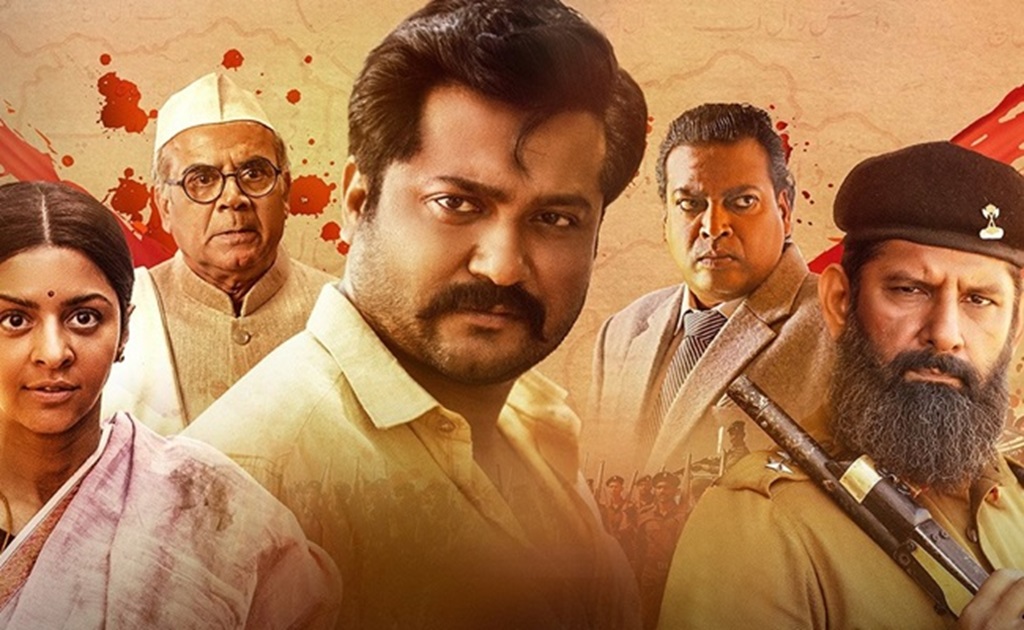A few months ago, the trailer for the film Razakar was enough to pique people’s interest. Citation problems, however, have postponed the film’s debut. A minority viewed it as biassed propaganda, while the majority saw it as an authentic portrayal of historical events.
This is the account of the Nizam State, a region in India that was at first reluctant to join Independent India but later consented following a series of conflicts and threats.
Mir Osman Ali Khan, played by Makrand Deshpande, wants to keep his realm separate from India. In addition, the militant Kasim Razvi indoctrinates him and joins him, promising that he will keep the Nizam State as its own entity called Turkistan rather than assimilating it into Independent India. Pakistan, rather than India, would be the better option if a merger is unavoidable.
With the help of Osman Ali Khan, Kasim Razvi transforms into a monstrous dictator who converts numerous Hindu towns to Islam by violent means. Rape, murder, and arson are only some of the violent acts that he plans and executes.
When everything else fails, Sardar Vallabhai Patel steps in to free the Nizam State from the Nizam’s tyrannical rule.
By methodically portraying Osman Ali Khan’s ideal expressions and body language, Makrand Deshpande nailed the role. Additionally, his figure is a good fit for the part.
Additionally, Raj Arjun, who played Kasim Razvi, is superbly convincing and commands the majority of screen time. Though he gives an adequate performance, Tej Sapru’s portrayal of Vallabhai Patel lacks the powerful Iron Man traits.
There are a lot of tunes like Bobby Simha and Vedika’s that don’t last very long in the film.
Though she doesn’t get nearly enough screen time, Indraja delivers a solid performance as Ilamma. The song and Anasuya’s guest appearance are both satisfactory. Anusriya Tripathi makes a brief appearance as the wife of Osman Khan.
Playing a victimised Brahmin persona, Subbaraya Sharma’s role is brief. A brief action scene with Prema before the interval also makes an appearance in the episode. Despite playing a supporting role, Tulasi begins with some impressive histrionics.
Razakar Mastery of Technology:
Props to the art, costume, cinematography, and graphics departments. Their expertise elevated the film to a new level.
Music director Bheems Cecireleo is the film’s primary craftsman responsible for its impact. He added a fantastic score and powerful tunes to the picture, making it power packed.
The theme music from the Parakala episode, “…praanam gaaju penku anuko…” is quite memorable. The words of Anasuya’s Bathukamma song, in which she curses Razakars, are equally remarkable.
Razakar Evaluation:
Preceding the events of September 17, 1948, this film depicts the uprising of the Hyderabadi populace against the tyrannical rule of the Nizam and the anarchy brought about by the Razakars.
While the film does cover some historical ground in Hyderabad, the actions it portrays are so horrifying that it makes one wonder why this tale went untold for so long.
The story is captivating, drawing the reader or viewer deeper and deeper into the plot and the characters’ feelings. There are a few tense scenes that make you feel all warm and fuzzy inside until finally giving you the chills. A sense of poetic justice with the rescuer at the end, together with feelings of patriotism and self-respect, fills the emotions.
In contrast, the film’s narrative style vacillates between trying to satisfy Rajamouli’s standards of visual grandeur within the allotted budget and evoking emotions through horrific crimes in the vein of R. Narayana Murthy.
The film has various elements that may not appeal to modern viewers due to its antiquated ideas, such as Bobby Simha’s pathos song following a violent event or a cow or ox murdering a Razakar in another scene.
The director’s attention to detail in specifying the exact time, location, and date of each event in chronological order is an intriguing aspect of the historical story that deserves praise. He has done meticulous research on the topic, the people involved, and their backstories. Despite certain exaggerations and artistic licenses, it appears to be a film lesson on historical events.
Akin to “The Kashmir Files Of Hyderabad,” this film “Razakar” depicts the horrific crimes committed by religious extremists against non-believers.
Here we have Kasim Razvi’s famous conversation from “The Kashmir Files,” which is the motto “Raliv Galiv ya Chaliv” (“convert, leave, or die”).
While this film is similar to “The Kashmir Files,” there are also some key distinctions. Here we have genuine cinematic storytelling, in contrast to the docudrama manner of the former. In contrast to the latter, which features a cast devoid of any redeemable Muslim characters, the former features strong female characters, such as journalist Shoabullah Khan.
Mir Laiq Khan and Kasim Razvi are the film’s primary antagonists, but the final Nizam, Mir Osman Ali Khan, is shown as the one who is impacted by them and feels regret at the end of the film.
Almost every episode features the same graph and similar feelings, making the scenes look repetitive. It appears like a high-budget pan-India picture due to the exceptional production values of this film. The story becomes much more riveting and passionate thanks to the musical approach.
Fans of the past will enjoy this flick. Naturally, many viewers feel something when seeing this film, even though the veracity of the atrocities shown is questionable.
Film: Razakar
ibomma Rating: 3/5
Cast: Raj Arjun, Bobby Simha, Makarand Deshpande, Vedika, Anasuya Bharadwaj, Tej Sapru, Indraja, Subbaraya Sharma, Annusriya Tripathi
Music: Bheems Ceciroleo
Editor: Thimmaraju
Cinematography: Kushendar Ramesh Reddy
Producer: Gudur Narayana Reddy
Director: Yata Satyanarayana
Release Date: 15 March 2024
Tantra Movie Review: No Thrills, Routine Horror

